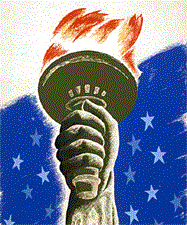 After weeks of anticipation, Washington has responded to the Seven Party Alliance (SPA)’s effort to mainstream the Maoists. It is to distribute translated copies of one of the most respected texts on democracy used by students and academics around the world.
After weeks of anticipation, Washington has responded to the Seven Party Alliance (SPA)’s effort to mainstream the Maoists. It is to distribute translated copies of one of the most respected texts on democracy used by students and academics around the world.US Ambassador James F. Moriarty handed over to Local Development Minister Rajendra Pandey more than 20,000 copies of the Nepali translation of Robert Dahl’s On Democracy. The books will be distributed across Nepal’s 75 districts.
“The government is working hard to put the nation on the path to democracy, peace, and prosperity, and information about democracy itself is critical to fulfilling those goals,” an American Embassy news release said.
The effort is certainly commendable, although the record of this approach is far from inspiring. The last major democracy treatise to be translated and distributed, Samuel Huntington’s Third Wave, coincided with the gradual erosion and emaciation of Nepalese democracy.
For Washington, the current endeavor also makes perfect sense as preemptive diplomacy. The battle for the Nepalese soul is certainly going to be waged in the thousands of villages of the country.
Over the last decade, the Maoists have progressively tightened their stranglehold on rural Nepal. Indoctrination has been exacting. Since the enemy has been portrayed as ubiquitous and must be crushed at all costs, a perpetual revolution of sorts has set in.
But indoctrination has had its ideological limits. With the young and literate having either fled the villages or already become part of the rebel movement, the Maoists were confronted with forcing dogma down the throats of elderly illiterates or infants too preoccupied with their mothers’ milk. The mechanics of Marxist-Maoist prose could not always be distilled into vernacular appealing enough to become part of the general political conversation Nepalese villagers are famous for.
In retrospect, Washington gave King Gyanendra a deadline to prevent the Maoists from attaining power on their own terms. We now know that when US Secretary of State Condoleezza Rice was talking about events “crystallizing” soon, she was referring to the window of opportunity the palace had. Once that threshold was crossed, without much being achieved, the conversation for America narrowed down to a “messy abdication”.
Moriarty joined the SPA bigwigs in New Delhi to personally acquaint himself with the provisions of the Indian roadmap. Washington understood there was no way the Maoists could be left out of any settlement. But they couldn’t be part of one in their existing incarnation because of two reasons: they are communists and terrorists.
Students of realpolitik would easily refer to how the Americans once supported the Khmer Rouge in Cambodia whom they continue to castigate. But, then, that was during the Cold War. The Vietnamese-backed communist regime of Heng Samrin was a greater adversary. Moreover, the Khmer Rouge was part of a government in exile led by Prince Norodom Sihanouk.
The Cambodia model could have been implemented in Nepal. By sending the likes of Prachanda, Dr. Baburam Bhattarai and Krishna Bahadur Mahara into internal exile with hard labor, people like Devendra Parajuli could have led a faction of less tainted rebels into the mainstream. Not everyone seems to have what it takes to be a Hun Sen.
To cut a long story short, does Robert Dahl have a chance of saving rural Nepal from the depredations of a group that reminds America of the worst of the Cold War and post-Cold War eras?
Or, more specifically, can Dahlisms like effective participation, equality in voting, gaining enlightened understanding, exercising final control over the agenda, inclusion of adults compete with the imperatives of taking great leaps forward and letting a hundred flowers bloom?
Perhaps. The prospect of peace might draw just enough literate Nepalis back to their villages with enough time for a comparative reading of the two texts. The intrinsic value of democracy, you would think, would work against a Maoist electoral sweep in rural Nepal.
But what if the young and literate don’t return to their villages in sufficient numbers? Well, much will depend on the quality of the work Dahl’s Nepali translators have done.